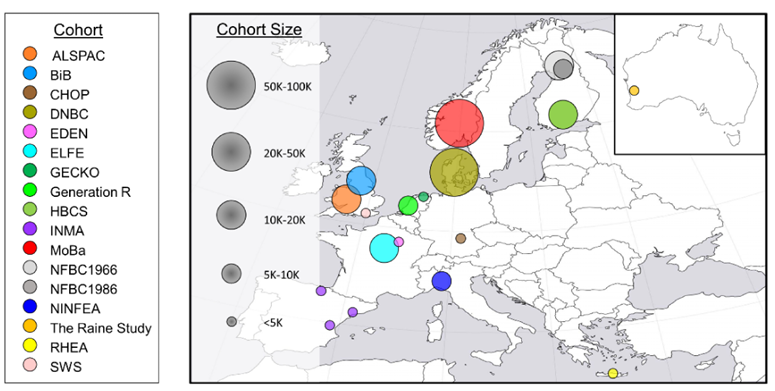Editors’ Picks
Measures of Early-life Behavior and Later Psychopathology in the LifeCycle Project - EU Child Cohort Network: A Cohort Description
Authors
Johanna L. Nader, Mònica López-Vicente, Jordi Julvez, Monica Guxens, Tim Cadman, Ahmed Elhakeem, Marjo-Riitta Järvelin, Nina Rautio, Jouko Miettunen, Hanan El Marroun, Maria Melchior, Barbara Heude, Marie-Aline Charles, Tiffany C. Yang, Rosemary R. C. McEachan, John Wright, Kinga Polanska, Jennie Carson, Ashleigh Lin, Sebastian Rauschert, Rae-Chi Huang, Maja Popovic, Lorenzo Richiardi, Eva Corpeleijn, Marloes Cardol, Tuija M. Mikkola, Johan G. Eriksson, Theodosia Salika, Hazel Inskip, Johan Lerbech Vinther, Katrine Strandberg-Larsen, Kathrin Gürlich, Veit Grote, Berthold Koletzko, Marina Vafeiadi, Jordi Sunyer, Vincent W. V. Jaddoe, Jennifer R. Harris
J-Stage
https://www.jstage.jst.go.jp/article/jea/33/6/33_JE20210241/_article
PMC
https://pmc.ncbi.nlm.nih.gov/articles/PMC10165218/
Highlights
- LifeCycle was developed to harmonize and analyze data from more than 250,000 participants across Europe and Australia, involving cohorts in the EU-funded LifeCycle Project.
- The mental health data contain longitudinal and cross-sectional data from birth through childhood, adolescence and adulthood, covering mental health domains across behavior, cognition, and psychopathology.
- The mental health data include qualitative data (questionnaires and clinical examination), biological samples, imaging (MRI and fetal ultrasound), and epigenetic data.
- Life course trajectories and exposure-outcome models will be used to identify early-life risk factors for mental illness, and develop predictive markers for later disease.
- External partners interested in collaborating can visit the LifeCycle Project website (https://lifecycle-project.eu/) for further information.
Selected Result





